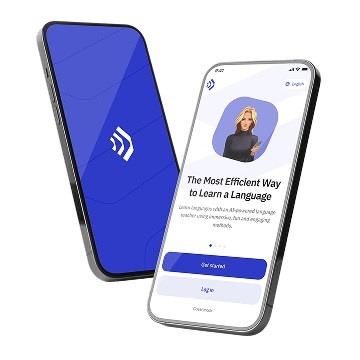Learning Arabic in Lithuania presents a unique opportunity for individuals looking to expand their language skills in a multicultural environment. Despite being a small country, Lithuania offers a variety of resources for learning Arabic, ranging from university courses to private language schools and online platforms. This linguistic journey not only enhances personal development but also boosts professional opportunities in the global market.
Enhanced Career Opportunities: Knowing Arabic can open doors in various sectors such as international trade, diplomacy, and academia, particularly with Arab-speaking countries.
Cultural Appreciation: Learning Arabic helps in understanding the rich cultural heritage of the Arab world, which is historically significant and vibrant in the fields of science, literature, and arts.
Personal Growth: Mastering a new language like Arabic can be a rewarding challenge that significantly enhances cognitive and social skills.
Arabic Language Programs in Lithuania
Lithuania may not be the first country that comes to mind when considering Arabic studies, but it offers several reputable programs that cater to different learning needs and goals.
Vilnius University: This prestigious university offers courses in Arabic language and culture, which are designed to cater both beginners and advanced learners. The programs are conducted by experienced instructors with a focus on modern Standard Arabic.
Kaunas University of Technology: Although primarily focused on technical and scientific courses, KTU also offers language courses, including Arabic, as part of its broader curriculum aimed at enhancing students’ global competencies.
Private Language Schools: There are several private institutions in Lithuania that offer Arabic language classes. These schools often provide flexible schedules and personalized learning experiences, making them suitable for working professionals.
Online Courses and Resources: With the advent of digital education, numerous platforms offer online Arabic courses that are accessible to learners in Lithuania. Websites like Coursera, Udemy, and Duolingo provide courses tailored to various levels of proficiency.
Integrating Technology in Learning Arabic
Technology plays a crucial role in modern language education, offering interactive and engaging tools that enhance the learning process.
Language Learning Apps: Applications such as Rosetta Stone, Babbel, and Memrise offer comprehensive Arabic courses that include speaking, writing, and listening exercises designed to improve proficiency.
Online Tutors and Language Partners: Platforms like italki and Tandem help learners connect with native Arabic speakers and certified tutors for personalized instruction and practice.
Virtual Reality (VR) and Augmented Reality (AR): Emerging technologies such as VR and AR are being used to simulate real-life interactions in Arabic, providing immersive learning experiences that are both effective and entertaining.
Challenges of Learning Arabic in Lithuania
While there are ample resources for learning Arabic in Lithuania, students may face certain challenges that can impact their language acquisition journey.
Limited Native Speakers: Unlike English or Russian, Arabic speakers are relatively less common in Lithuania, which might limit real-life practice opportunities.
Dialect Diversity: Arabic is rich in dialects, and most courses teach Modern Standard Arabic (MSA). Learners aiming to specialize in a particular regional dialect might find resources scarce.
Complex Script and Pronunciation: Arabic script and its pronunciation can be challenging for beginners, especially those whose first language uses the Latin alphabet.
Community and Cultural Engagement
Engaging with the local Arab community and participating in cultural events can significantly enhance the Arabic learning experience in Lithuania.
Arab Community Centers: These centers often organize language workshops, cultural festivals, and other activities that provide practical language practice and cultural immersion.
Cultural Events: Events such as film screenings, art exhibitions, and food festivals offer opportunities to experience Arab culture and practice language skills in a social setting.
Language Meetups and Clubs: Participating in language exchange meetups can provide informal settings to practice Arabic with native speakers and other learners.
Future Prospects for Arabic Learners in Lithuania
The demand for Arabic speakers in Lithuania is expected to grow, influenced by global economic trends and diplomatic relations.
Business Opportunities: As Lithuania expands its trade relationships with Arab countries, proficiency in Arabic offers a competitive edge in sectors such as technology, manufacturing, and services.
Academic Collaborations: Increased academic partnerships with institutions in the Arab world could open up opportunities for research, scholarships, and exchange programs.
Diplomatic Roles: Proficiency in Arabic can also pave the way for roles in diplomacy and international relations, particularly at organizations such as the European Union and United Nations.
In conclusion, learning Arabic in Lithuania is not only feasible but also immensely beneficial for personal and professional development. With the right resources, technology integration, and community engagement, learners in Lithuania can successfully navigate the challenges and reap the rewards of becoming proficient in this globally significant language.





